#ActForHumanity with Anastasiya
Anastasiya Marchuk on Local Humanitarian Responses in Ukraine
“Two days ago, I heard a colleague here say – we need to go from being safe to being brave. And when we talk about humanity, protection of human lives and dignity, we all need to be brave and engage in uncomfortable discussions. As Head of Programmes for NP in Ukraine, I see incredible people every day, and I haven’t yet lost the faith that humanity can and will prevail. I hope I am not alone in this.”
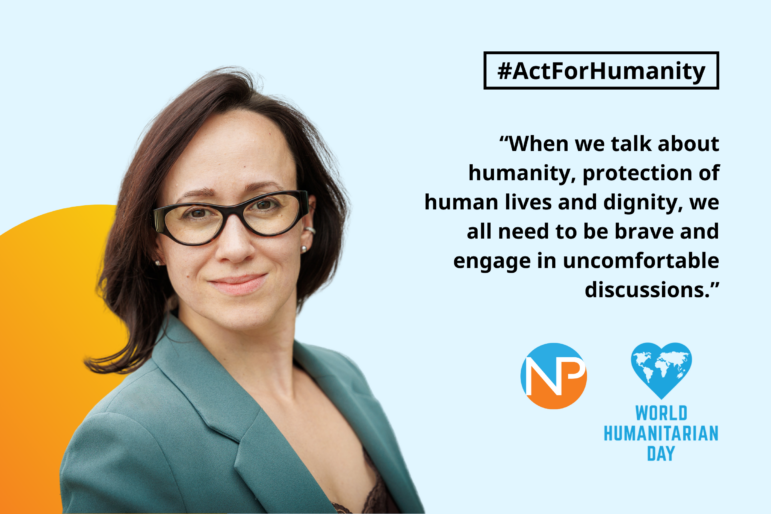
Join us for a conversation with Anastasiya Marchuk, Head of Programmes for NP in Ukraine, as part of our series for World Humanitarian Day 2024. Anastasiya shares her insights and experiences working alongside Ukrainian volunteers and local organizations—those who are humanitarians, risking their lives to serve their communities with little or no support.
Q: What does being a humanitarian mean to you?
As a Ukrainian I have been personally and deeply affected by this conflict. As a humanitarian I understand the need for an immediate and effective response that centers civilian needs. The ongoing humanitarian response in Ukraine has been absolutely essential for Ukrainian civilians (including my own family, friends and neighbors) whose lives have been ravaged and destroyed by this conflict. Humanitarian work is not political, nor should it be, but I see it as a core part of my response to this war as a responsible and proud Ukrainian.
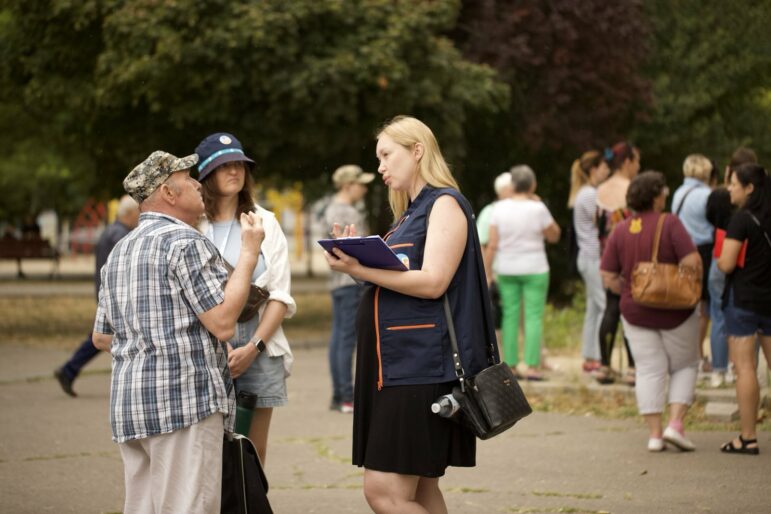
I am constantly inspired by those around me who have stepped up and volunteered to be a part of this response. There are countless Ukrainians actively working to address civilian needs on the frontline of this conflict who may not be publicly recognized as humanitarians or even see themselves through this light, but their work is the core of the current humanitarian response. They consistently put themselves at risk to assist others, often without compensation or outside support. Being a humanitarian means #ActForHumanity, no matter what—something the Ukrainian volunteer response wholly embodies. There was a volunteer network conducting evacuations in Kherson that asked an international actor for support, only to be told, “No, it’s too dangerous.” But in the face of adversity, Ukrainians refuse to take no for an answer—both as individuals and as a society. They’re not just evacuating “civilians”; they’re evacuating their neighbors, their family.
Undeterred, they continued the evacuations without support from the international actor. But as a Ukrainian humanitarian in an international organization, I am committed to supporting their efforts and believe the international community can do better. That’s one reason why, instead of insisting they adhere to the standard security protocols followed by international actors, we are adapting our support to fit the unique needs and realities of Ukrainians.
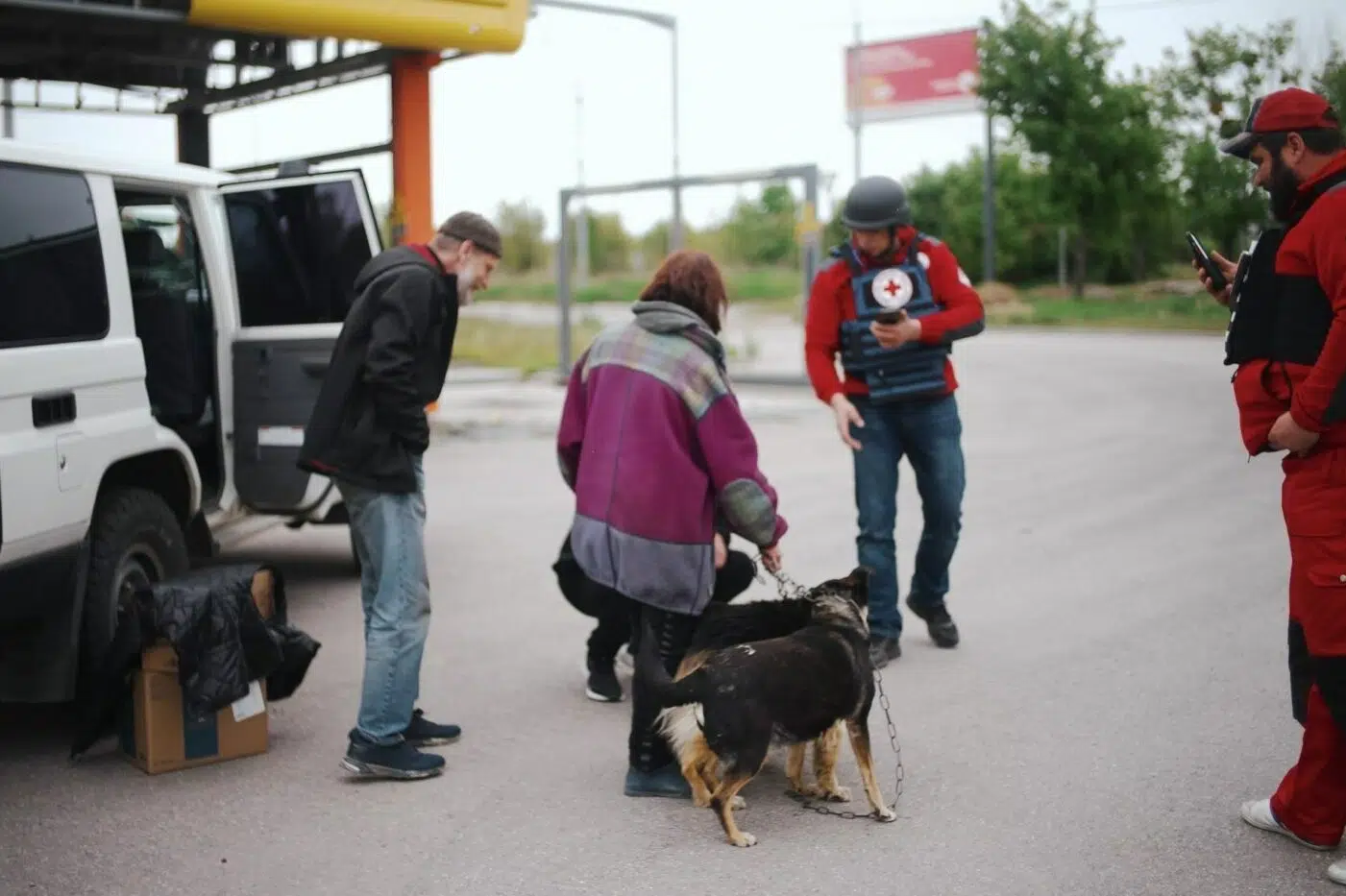
Q: What are some specific challenges local volunteers and organizations face in humanitarian work?
A major issue is how governments and philanthropists are funding humanitarian work. Funding has largely become transactional, instead of being a partnership. When governments and institutions fund humanitarian work, they often don't see or acknowledge the challenges, leaving humanitarians to handle these issues alone.
For example, during a recent escalation in the northeast, local humanitarian groups evacuated up to 40% of all evacuees. These groups often do not receive external funding, and when they do, little support is given to ensure their safety. There’s a high expectation that civil society will step in, go to the most dangerous locations, and get people out of harm’s way, even when international organizations can’t.
Another big problem is the conscription of local volunteers into the military, creating serious problems for humanitarian efforts. Many countries fund both the military and humanitarian responses in Ukraine; although these funds often come from the same sources, they are kept separate. So, why is it so complicated to exempt humanitarian workers from conscription?
Q: How does conscription impact humanitarian work in Ukraine?
When humanitarian workers are conscripted, it severely impacts their ability to help people. For instance, recently, four drivers from a local organization were conscripted. This means that next time there’s a need to evacuate people from a frontline village, there will be four fewer cars available.
Every time there is one less volunteer able to do their work, there is less protection and fewer services for civilians, creating a gap that can’t be filled with government services. It also stops the growth of local organizations and threatens efforts to make aid more locally driven. International groups then have to rely more on foreign staff, which is expensive and less effective. These groups often don’t go to the most dangerous areas where help is needed the most–the actual frontlines.
These aren’t just hypothetical problems. Without clear rules to delay conscription for those doing critical humanitarian work, these issues become very real. It’s not about ‘protecting’ humanitarians from military service, it’s about sustaining critical humanitarian support by keeping in place those best suited to provide it.
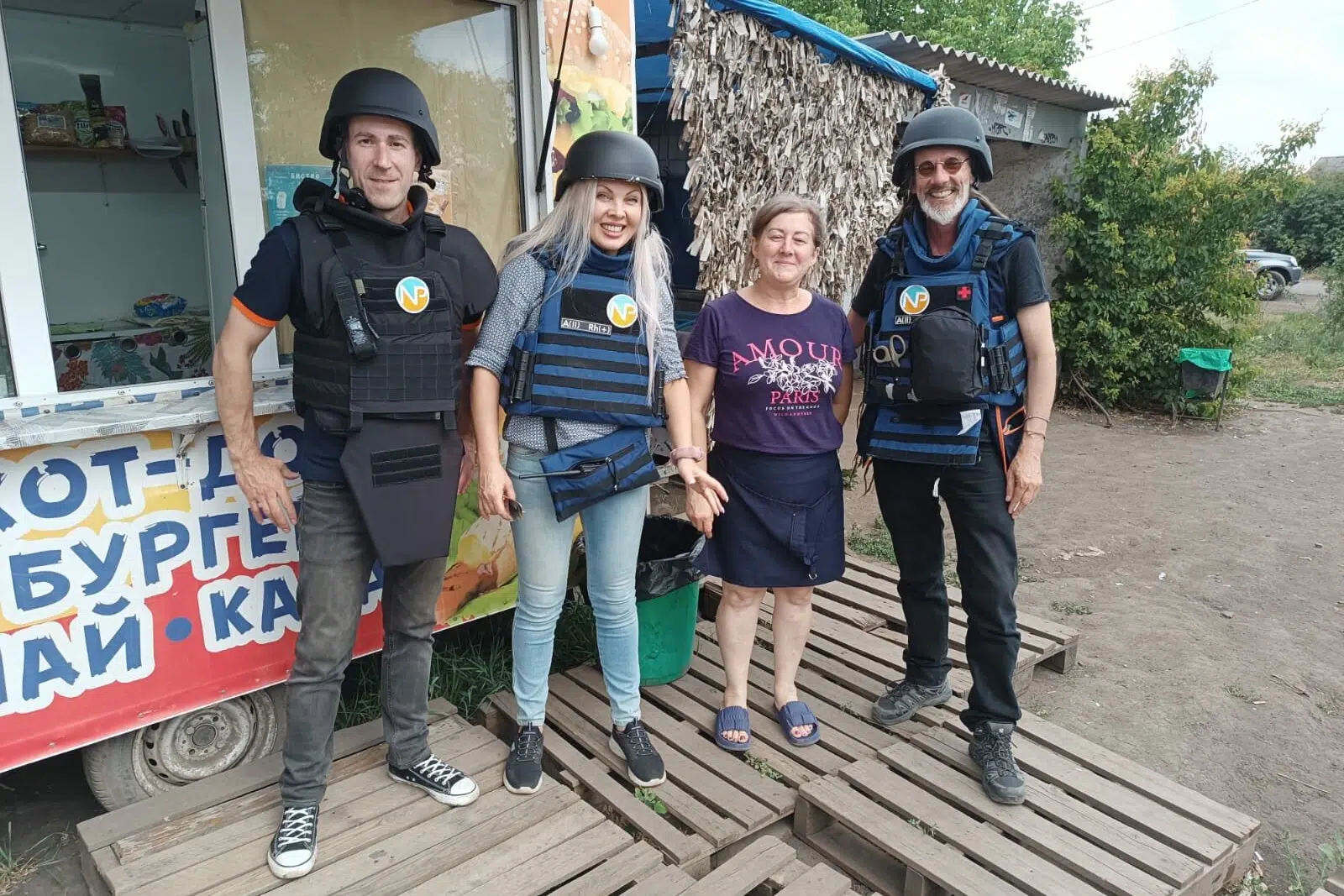
Q: What is something you are proud of?
Our team in Ukraine is made up of both Ukrainians and foreign staff, and that international solidarity is invaluable. While this is true, I am incredibly proud of our Ukrainian Protection Officers at NP. Although many humanitarian organizations rely heavily on foreigners, each of our Protection Officers is Ukrainian. This local expertise and dedication make a significant difference in our work.
I am also very proud to work alongside local volunteer groups—we strive to ease their burden and act as a bridge. I am proud that we have built a program where we are able to provide vital resources, from lending personal protective equipment like flak jackets and helmets to our volunteer insurance programme, which covers medical expenses if someone is injured, for example, by shrapnel during an evacuation, or volunteer resiliency programme, which provides free and confidential counselling for volunteers.
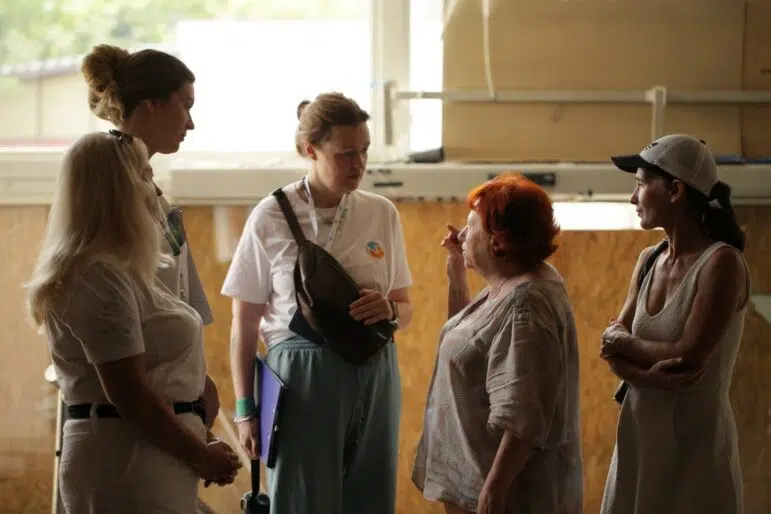
These efforts ensure that local humanitarian workers have the support they need to carry out their crucial work safely and effectively. Don't just take it from me, I heard just the other day from one of our partners, Healthy Nation for the Future Ukraine, that they had received positive feedback from one of their team members who had used our volunteer resiliency programme:
"The sessions helped me better understand myself and deal with the problems that bothered me the most. In addition, they were taught to constantly analyze life situations and look at them from a different point of view than it was before. There is a feeling of relief, and this is the main thing for me."
This feedback reaffirms our commitment to standing by local volunteers, ensuring they have the tools and the support necessary to face the immense challenges of their work with resilience and strength.


